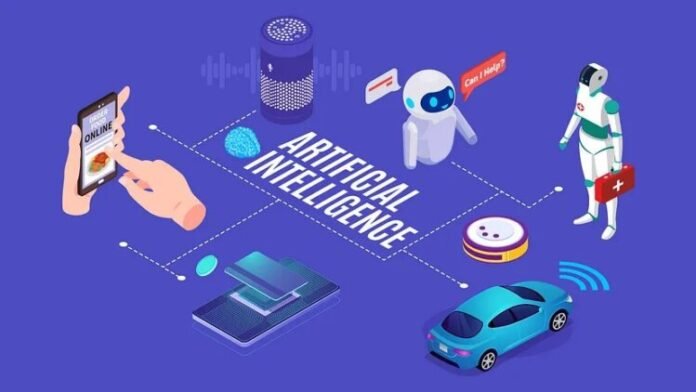KARACHI: Artificial intelligence is rapidly transforming industries, with advancements in autonomous decision-making systems, healthcare, and transportation poised to redefine the future. By 2028, AI’s influence will span across various sectors, reshaping how we live, work, and interact.
AI’s Growing Role in Decision-Making:
Industry analysts foresee dramatic progress in artificial intelligence, particularly in systems capable of autonomous decision-making. Gartner projects that agentic AI—intelligent systems capable of learning from experiences and performing tasks independently—will manage 15% of routine work decisions by 2028. This represents a significant leap, marking a departure from traditional workflows and signaling a shift toward greater efficiency and automation.
Revolutionizing Healthcare and Retail:
AI integration in healthcare is set to improve patient care delivery, offering better diagnostics, personalized treatments, and streamlined operations. Meanwhile, retailers are leveraging AI to create highly personalized shopping experiences, catering to individual preferences and enhancing customer satisfaction.
Transportation: The Road to Autonomy:
Autonomous vehicles are closer than ever to becoming mainstream. Following the UK’s **Automated Vehicles Act**, Tesla and other manufacturers are accelerating efforts to introduce self-driving cars to the European market. While fully autonomous vehicles may still be a few years away, semi-autonomous features are becoming more common, setting the stage for a transportation revolution.
Telecommunications and the 6G Horizon:
The telecommunications sector anticipates a transformative period with the rollout of 5G, particularly after the Vodafone-Three merger. Research into 6G technology is also underway, promising unparalleled connectivity and speed, though commercial implementation is likely a decade away.
Breakthroughs in Brain-Machine Interfaces:
Neuralink’s successful human brain chip implantation marks a pivotal milestone in AI-human interaction. Gartner predicts that by 2030, nearly one-third of knowledge workers will rely on brain-machine interface technologies to stay competitive in an AI-dominated workplace. This development highlights the intersection of neuroscience and technology, offering possibilities for enhanced cognition and communication.
Quantum Computing and the AI Arms Race:
Quantum computing continues to advance, with Google’s Willow chip solving problems in minutes that would take conventional computers millennia. As tech giants race for breakthroughs, the potential for AI-driven quantum computing to revolutionize fields such as cryptography, logistics, and scientific research grows exponentially.
Augmented Reality’s Next Chapter:
Augmented reality is set to take center stage with Samsung’s anticipated release of AR glasses in 2025, following Apple’s Vision Pro. These innovations promise immersive digital experiences seamlessly integrated with physical environments, paving the way for advancements in education, entertainment, and professional training.
The Road Ahead:
By 2028, AI will have fundamentally altered the landscape of multiple industries. From enhancing decision-making and healthcare delivery to advancing autonomous vehicles and telecommunications, these developments highlight the boundless potential of artificial intelligence to revolutionize human life. As the AI era unfolds, adaptability and innovation will be key to thriving in this transformative age.




